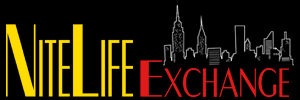
By Marilyn Lester***In a decades-long career as a pianist-vocalist in New York City and beyond, Daryl Sherman has not only proved her chops with those talents, but has  emerged as a terrific musical historian to boot. There’s a trend now in rediscovering the forgotten stars of the day (James Reese Europe being a prime example), but Sherman has been ahead of that curve, with this reboot of Mildred Bailey love (she’d recorded Celebrating Mildred Bailey and Red Norvo and Born To Swing some years back).
emerged as a terrific musical historian to boot. There’s a trend now in rediscovering the forgotten stars of the day (James Reese Europe being a prime example), but Sherman has been ahead of that curve, with this reboot of Mildred Bailey love (she’d recorded Celebrating Mildred Bailey and Red Norvo and Born To Swing some years back).
It was only natural for Sherman to open her Birdland Theater set with “Born to Swing” (Irving Nemo) as a tribute to “The Queen of Swing.” From the outset, her stellar band: Loren Schoenberg, piano and tenor sax; James Chir illo, guitar and Boots Maleson, bass; proved a first-class unit, each liberally revealing their chops in spotlight features. Schoenberg’s appearance was particularly special since in recent years he’s been concentrating mostly on teaching (Julliard, Jazz at Lincoln Center, among others) and duties as Senior Scholar at the National Jazz Museum in Harlem, which he co-founded. And, of course, he demonstrated that he’s maintained his high-level of playing on the tenor, his main instrument.
illo, guitar and Boots Maleson, bass; proved a first-class unit, each liberally revealing their chops in spotlight features. Schoenberg’s appearance was particularly special since in recent years he’s been concentrating mostly on teaching (Julliard, Jazz at Lincoln Center, among others) and duties as Senior Scholar at the National Jazz Museum in Harlem, which he co-founded. And, of course, he demonstrated that he’s maintained his high-level of playing on the tenor, his main instrument.
Sherman is an easy-going natural. She makes her terrain of the stage her own, as if we, the audience, just happened to be at a jam in her living room. As to Bailey, she tells of being turned on to her about two decades ago. Sherman has a light soprano and has thus been compared to Bailey (as well as Blossom Dearie). What’s common to these three vocalists is superb musicality. A medley  of intertwined “Georgia on My Mind” (Hoagy Carmichael, Stuart Gorrell) and one of Bailey’s signature songs, “Rockin’ Chair” (Carmichael) demonstrated that keen ability for phrasing and storytelling. For quite a few numbers, as with this medley, Sherman turned the piano over to Schoenberg; it was a treat to witness her as a “girl singer” at the mic a la Bailey.
of intertwined “Georgia on My Mind” (Hoagy Carmichael, Stuart Gorrell) and one of Bailey’s signature songs, “Rockin’ Chair” (Carmichael) demonstrated that keen ability for phrasing and storytelling. For quite a few numbers, as with this medley, Sherman turned the piano over to Schoenberg; it was a treat to witness her as a “girl singer” at the mic a la Bailey.
And the importance of Bailey: she was the first female in jazz history to front a band—the Paul Whiteman Orchestra in 1929 (Ivie Anderson, Duke Ellington’s famous vocalist joined his organization in 1931). Bailey was also of indigenous heritage, born on the Coeur d’Alene Reservation in Idaho. She grew up in Washington State and with a move to Seattle, quickly launched a career as a teen that brought her to the attention of Bing Crosby and subsequent popularity and stardom.
 A novelty song, “Bob White” (Bernie Hanighen, Johnny Mercer) was performed with accompaniment by Maleson only. The bassist has had a long association with Sherman and the synergy between the two was palpable. Later in the program, Maleson, who plays a unique five-string upright, gave a stunning solo rendition of “Summertime” (George and Ira Gershwin), handling the instrument as if playing a guitar or pizzicato on a large violin.
A novelty song, “Bob White” (Bernie Hanighen, Johnny Mercer) was performed with accompaniment by Maleson only. The bassist has had a long association with Sherman and the synergy between the two was palpable. Later in the program, Maleson, who plays a unique five-string upright, gave a stunning solo rendition of “Summertime” (George and Ira Gershwin), handling the instrument as if playing a guitar or pizzicato on a large violin.
A surprise came with the appearance of clarinetist Ken Peplowski, who was about to start his own show upstairs at Birdland. He joined the full Sherman band for “It’s Love I’m After” (Sidney Mitchell, Lew Pollack), harmonizing with Schoenberg on tenor and executing a superb feature of his own—a few bars containing a world of excellence. Closer was a swinging “Lover, Come Back to Me” (Sigmund Romberg, Oscar Hammerstein II), with Sherman at the mic, clinching her own title as a queen of swing.







